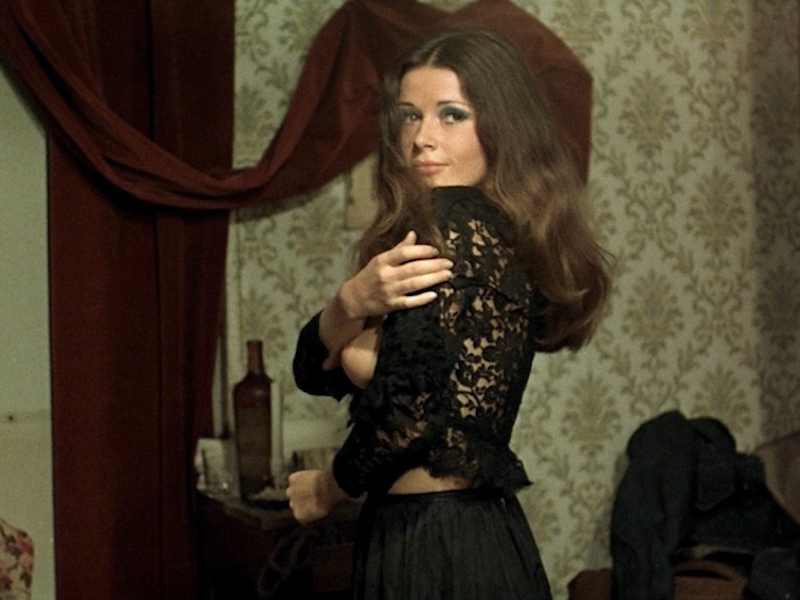
A gang of pirates rape the two sole survivors of a ship wreck. The violated girls are rescued by the strange inhabitants of a supposedly haunted island, where they are granted supernatural powers to strike revenge against the pirates.
EN
“How to describe Rollin to a newcomer? Perhaps by remarking that all noteworthy directors have their talismans. Hitchcock has icy blondes, Kurosawa loves to stage scenes in rain, Scorsese never wanders far from his outlaws and mavericks – and Jean Rollin has the past, a past composed of storybook chateaux, cemeteries, villages on the eve of demolition and a particularly haunting stretch of beach that brought out the Proust in him. His work also has a certain fondess for vampires, less for their menacing qualities than for their romantic ability to simultaneously inhabit the now and the then, and their stubborn resistance to the way of all flesh. Rollin, himself a vampire in this regard, had a profound appreciation for the extinct, the archaix and the bygone, while also familiar with what the poet Shelley (Pete, not Percy called “nostalgia for an age yet to come.” It is this peculiar twilight, not only of things but of the shelf, that his body of work – a corpus, if you will – singularly inhabits.
If you're looking for horror films to scare you, you should look somewhere else. Rollin belongs to hoor but, with the exception of Les raisins de la mort (1978) and La morte vivante (1982) – two middle-period films steeped in the “gore” mode –his films do not horrify; instead, they represent the very heart and soul of “le fantastique” – its flamboyance, its melodrama, its sense of the impossible made possible. They do not scare us; they were designed to delight us, to arouse our imagination, to move us.”
Tim Lucas1
- 1Tim Lucas, The Cinema of Jean Rollin, the booklet of the BluRay of Fascination (Jean Rollin, 1979), distributed by Redemption.


